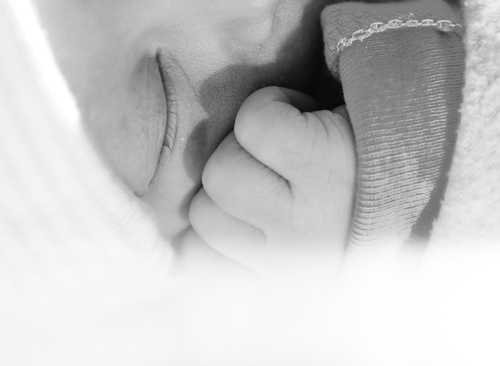I had imagined leaving the hospital with my first baby the way every new mom seems to -- pushed to my car, inexplicably, in a wheelchair, with a sleepy baby nestled in my arms and my husband by side fumbling with our never-before-used car seat.
Instead, my husband and I left alone, walking through the hospital's oversized sliding glass doors as though we were leaving after visiting a sick friend rather than having just given birth to a tiny baby girl. We left our baby behind in the Neonatal Intensive Care Unit attached to tubes and beeping machines while doctors poked and prodded and tried to figure out what was wrong with her -- why her breathing was erratic, why she wasn't eating, why her heartbeat wasn't steady and strong. Walking out of the hospital doors without my baby was one of the most surreal experiences of my life, and it was just the beginning of life with my daughter being nothing like the way I had imagined.
I had a perfect pregnancy, filled with joy and baby showers and test after test coming back normal. My labor was quick and complication-free. I felt so incredibly happy holding my baby girl for the first time. But, within hours of her birth doctors began raising concerns. "Her head is very big," said one. "She is not acting like a typical newborn," said another.
Still, we thought we would be leaving the hospital as a family of three when my daughter was two days old. I packed my things while my husband went to the nursery with our tiny daughter for what we thought would be her last check-up before we took her home. Instead, my husband returned to my room noticeably uncomfortable and unsure how to tell me that new problems had been found. It was left to him to tell me that because of our daughter's labored breathing, abnormal heart rhythm and weak suck, she would be admitted to the hospital's NICU at the exact same time that I would be discharged.
The NICU is nowhere you ever want to ever step foot or see someone you love. It is full of bright lights 24 hours a day. Machines beep constantly and alarms triggered by babies in distress blast through the room several times a day, sometimes several times an hour. The babies are all brand-new, and it is heartbreaking to see them in plastic cribs with tubes in their tiny noses and belly buttons. The large binders next to every crib with pages after page after page of medical information about a tiny human less than a week old are disturbing and portend a future full of medical issues and doctor's visits.
Yet, the NICU nurses were kind and patient. They all called me "mom" which I found disconcerting because this was about as far from the experience of mothering as I could imagine. I didn't feel like a mom in the NICU. Rather, I felt equal parts like an interloper who found herself somewhere she should not be, and an advocate trying at every turn to ensure my daughter was well cared for in this cold, impersonal setting. A mom was someone who was up nights with her baby, but my baby and I were sleeping in different places. A mom was someone who held her child for hours on end, but the IV in my child's head and tubes coming out of her nose to help her breathe made it difficult, and even dangerous, to hold her. A mom was someone who took delight in introducing her new baby to friends and family, but my baby lived in a hospital where visitors were restricted and the few people who came to visit were somber and unsure of what to say. A mom is someone who makes all kinds of decisions, big and small, for her baby but in the NICU a parade of specialists decided what was best for my baby and a well-meaning nurse suggested I might change my daughter's diapers so that I "could feel more involved." A mom is someone who lives in a home full of baby gear and toys, but with no baby at home I asked my husband to put the crib, stroller and swaddling blankets away somewhere I wouldn't have to see them and be reminded that there was no baby at home as we had planned.
To be reassuring, nurses told me "Your baby will be going home with you." Eventually I realized this was their way of saying "She isn't dying like some babies in here so it could be worse," but with such an uncertain future ahead of this it wasn't comforting in the way it was meant to be.
Eventually my baby came home, still attached to a monitor and with tanks and tanks of oxygen, but she was home and we had finally walked out of the hospital doors together, as a family of three. The crib, and stroller and swaddling blankets were put back where they had been before they became unbearable to look at.
Our days were not filled with going to baby yoga classes and new mom get-togethers the way I had imagined, but were instead filled with doctor's appointments and therapy sessions that so often follow a NICU stay.
Even now, years later, I cannot walk past a NICU without feeling tense. But, I still use the lessons the learned in the NICU today: the importance of asking for help when it's needed; the need to advocate for your child, and that the journey through parenthood is always unpredictable; and that you get through even the hardest of experiences in tact.
